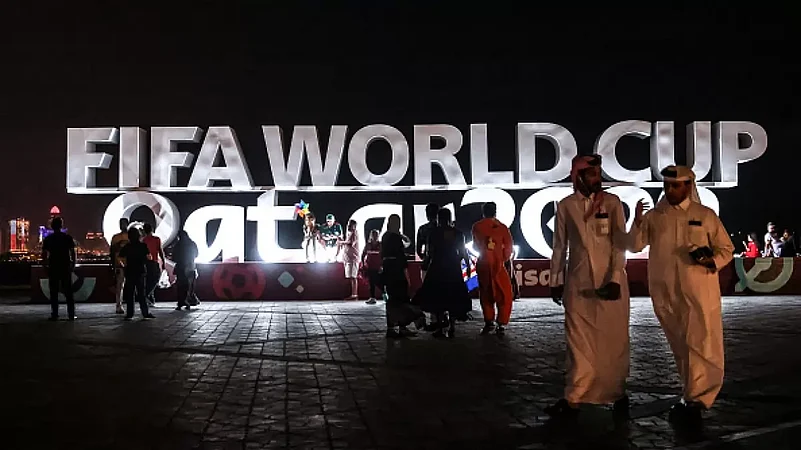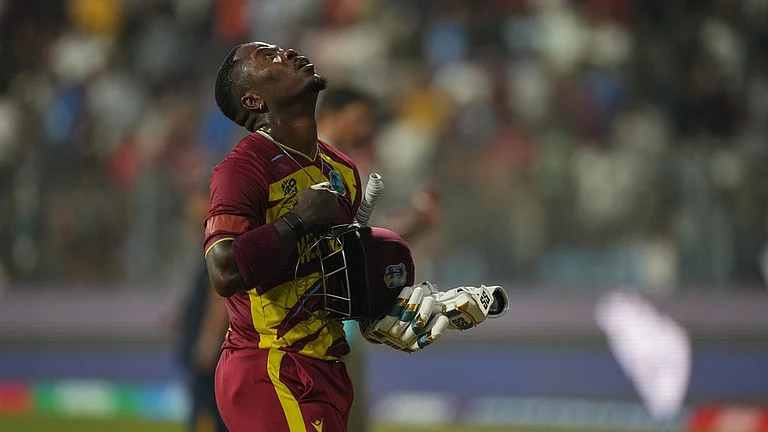The West declared a war on Qatar on December 2, 2010 when FIFA awarded Qatar the rights to host the 2022 World Cup. Since then, the West has spared no effort in tarnishing the image of the small and wealthy Gulf state. It has questioned its morality, practices concerning individual liberty, human rights record, and so on.
The first accusation was that Qatar bribed FIFA to get the World Cup. The counter argument is this — Even if the accusation is true, it is not the first time it has happened. Look into your own records, previous World Cup hosts, how your vote was won. Brazil and Russia, where the last two World Cups were held, were also suspected of having greased the right palms to secure the golden goose that is the World Cup. And these are just two examples. Football history is full of cases where several so-called developed nations were guilty of corrupt practices, not just while bidding for tournaments but also in terms of match-fixing in their domestic leagues.
Coming to the deaths of immigrant labourers and their harsh working conditions, well, according to the International Labour Organisation (ILO), there are more than 50 million people engaged in “modern slavery”. Qatar at least amended their labour laws and extended help to workers.
Where lack of personal freedoms and human rights abuse are concerned, many of the business partners of the West are guilty of them. Will the West stop doing business with them? No. The truth is that no nation’s cupboard is empty of human skeletons.
Drinking is banned in Qatar, but for the World Cup, Qatar allowed alcohol consumption in designated areas. Though FIFA later banned the sale of alcohol. Same sex relationships are not allowed either but, here too, an accommodation has been made. LGBT couples cannot parade their affection in public and disrespect local traditions, but they are allowed to stay together in hotel rooms in Qatar.
The war on Qatar never stopped despite all the concessions they made on some of the rules, and the improvements they made in bringing regulations into line with international labour standards.
In any case, the awakening of the West to human rights issues is amusing, especially when the world is witnessing the inhuman treatment of Asians, African, and Latin American migrants in Western countries.
The Western media is fighting a lost battle by politicising the World Cup and calling for its boycott. They are trying to discredit Qatar with negative reporting and by inciting arguments with local authorities. The West is simply unable to digest that a tiny Arab Islamic country will host the World Cup which supposedly belongs to the “civilised” Western world.
On the other hand, people who will visit Qatar will see the reality, presented by the local media, and they will see first-hand the hospitality and arrangements made by Qatar to make this year's tournament a memorable one.
Qatar spent nearly $200 billion on contracts granted to Western companies in accordance with the right of companies affiliated with the United Nations (UN) in relation to workers and their rights. They built state-of-the-art stadiums and world-class hotels. Despite the odds and negative publicity, the excitement among football lovers is peaking and Doha is expected to accommodate more than 1.7 million visitors during the tournament.
It was Qatar which spent billions of dollars to topple regimes in the Arab world during the Arab Spring in 2011 at the behest of the United States and the West. Qatar's former Foreign Minister and Prime Minister Hamad Bin Jassim admitted involvement in spending billions of dollars arming and training the rebels in Turkey, and then smuggling them into Syria and Iraq to kill innocents and destroy their civilisations.
The Arab Spring caused an exodus of immigrants into the West and created Islamophobia across the globe. This led to the destruction of many Arab countries. The region is still in turmoil and will probably never recover. The wounds of the victims and their families will never heal.
It is the same Western world, which rewarded Qatar for its role in the Arab Spring, which is now opposing its hosting of the World Cup, perhaps to deflect attention from its own misdeeds in the Middle East and North African region.
For many Arabs, it is a proud moment that Qatar is hosting the World Cup, and they are pleased to show the other side of the story to the world. Controversy based reportage will continue, but there is every chance the World Cup will become a success and put Qatar on the world map for a different reason.





















